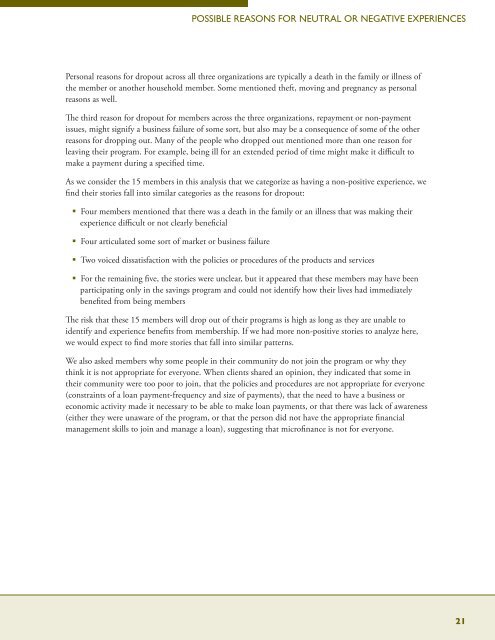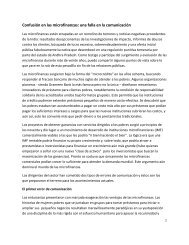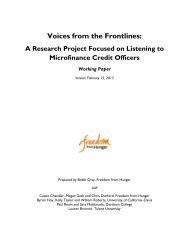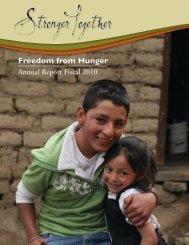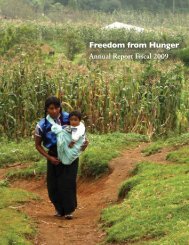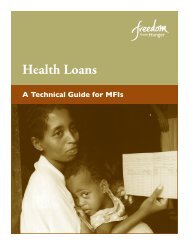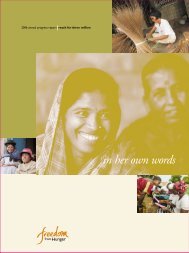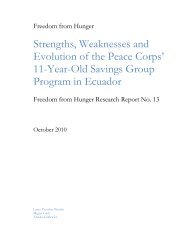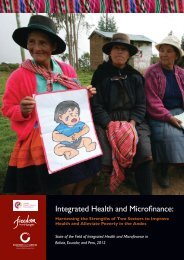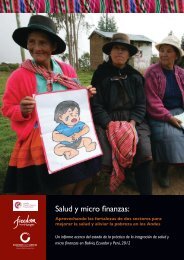English - Freedom from Hunger
English - Freedom from Hunger
English - Freedom from Hunger
Create successful ePaper yourself
Turn your PDF publications into a flip-book with our unique Google optimized e-Paper software.
Personal reasons for dropout across all three organizations are typically a death in the family or illness of<br />
the member or another household member. Some mentioned theft, moving and pregnancy as personal<br />
reasons as well.<br />
The third reason for dropout for members across the three organizations, repayment or non-payment<br />
issues, might signify a business failure of some sort, but also may be a consequence of some of the other<br />
reasons for dropping out. Many of the people who dropped out mentioned more than one reason for<br />
leaving their program. For example, being ill for an extended period of time might make it difficult to<br />
make a payment during a specified time.<br />
As we consider the 15 members in this analysis that we categorize as having a non-positive experience, we<br />
find their stories fall into similar categories as the reasons for dropout:<br />
Four members mentioned that there was a death in the family or an illness that was making their<br />
experience difficult or not clearly beneficial<br />
Four articulated some sort of market or business failure<br />
PossIble Reasons FoR neuTRal oR negaTIve exPeRIenCes<br />
Two voiced dissatisfaction with the policies or procedures of the products and services<br />
For the remaining five, the stories were unclear, but it appeared that these members may have been<br />
participating only in the savings program and could not identify how their lives had immediately<br />
benefited <strong>from</strong> being members<br />
The risk that these 15 members will drop out of their programs is high as long as they are unable to<br />
identify and experience benefits <strong>from</strong> membership. If we had more non-positive stories to analyze here,<br />
we would expect to find more stories that fall into similar patterns.<br />
We also asked members why some people in their community do not join the program or why they<br />
think it is not appropriate for everyone. When clients shared an opinion, they indicated that some in<br />
their community were too poor to join, that the policies and procedures are not appropriate for everyone<br />
(constraints of a loan payment-frequency and size of payments), that the need to have a business or<br />
economic activity made it necessary to be able to make loan payments, or that there was lack of awareness<br />
(either they were unaware of the program, or that the person did not have the appropriate financial<br />
management skills to join and manage a loan), suggesting that microfinance is not for everyone.<br />
21


